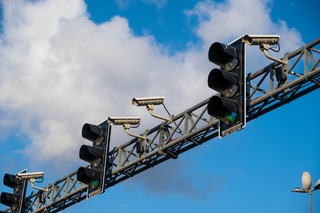Newburgh Heights – Is this the End of Automated Traffic Cameras in Ohio?

Technically, no. Practically, maybe. Two weeks ago, the Ohio Supreme Court issues another decision in the seemingly never-ending line of cases which are related to Home Rule, automated traffic cameras, and the General Assembly’s effort to turn them off. At issue Newburg Heights v. State, 2022-Ohio-1642 were two things:
(1) Does R.C. 5747.502(A)(6) and (C)’s language that reduces a municipality’s share of the state’s local government fund by an amount equal to the fines collected based upon citations arising from the use of traffic cameras (“the speeding setoff”) violate Home Rule and
(2) Does R.C. 4511.099(A)’s language that require a municipality to pay an advance deposit of costs and fees when commencing a civil action to enforce a citation issues using an automated traffic camera system (“the deposit requirement”) violate Home Rule.
Writing for the Court, Justice Kennedy answered both questions with a resounding “no”. The Court pointed out the Ohio Constitution does not create a general duty for the General Assembly to fund the operations of municipal corporations. It also noted the General Assembly’s power to create a court includes the power to define its jurisdiction and to provide for its maintenance. Using these two principles, the OSC determined neither the speeding setoff nor the deposit requirement violate Home Rule.
Both are constitutional and enforceable because they do not prohibit the use of traffic cameras. Instead, the speeding setoff and deposit requirement only (may) disincentivize municipalities from adopting or continuing to use traffic cameras. As the Court noted, “the Ohio Constitution does not require the General Assembly to appropriate any funds to municipalities, and it does not create a specific right for a municipality to receive local-government funds from the state. According to the Court, Home Rule “grants municipalities control over matters of local self-government, but it does not require the General Assembly to pay for it, either directly by appropriation or indirectly through the increased burdens caused by litigating citations based on traffic cameras in the state’s courts”.
So what does this mean? Ohio municipalities remain free to enforce its traffic laws with cameras, but they must do what the law proscribes. That is, if the cameras are turned back on (or used for the first time), the funds collected must be reported and the speeding setoff will reduce the municipality’s share of Local Government Funds. And, the municipality must file these cases in court and follow the deposit requirement.